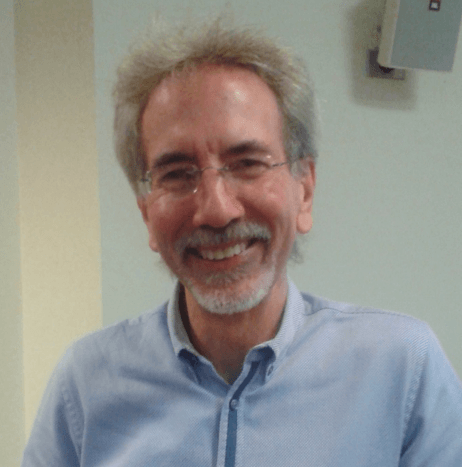
Thomas Gilovich, renowned Irene Blecker Rosenfeld Professor of Psychology at Cornell University, presents “Enemies of Gratitude” at Dartmouth College. Gilovich has written multiple books in social psychology and has contributed to several peer-reviewed journals. His research focuses on how people make everyday decisions and the emotions that influence their judgements. (Photo Credit: Josephina Lin)
Thomas Gilovich, a professor of psychology at Cornell University, discussed his research in the psychological processes involved with gratitude and suggested potential ways to combat ingratitude while increasing happiness.
Gratitude is associated with several benefits including greater sense of meaning in life, improved sleep, fewer doctor visits, and even feeling more in touch with your “better self”—a self that is more generous and honorable. Why, then, do people tend to fixate on negative aspects of their lives and overlook things they should feel grateful for? Gilovich identified three “enemies” of gratefulness: adaptation, dwelling on negatives, and skewed perceptions of hardship.
Although people obtain happiness from new events and purchases, this contentment is short-lived. Once people reach one level of success, such as a work promotion, they adapt to their new situation and yearn for more. To combat such fleeting satisfaction, Gilovich advises people to strive for experiences, rather than material items. In one survey, people rated their happiness for past, current, and prospective material and experiential purchases. At first, they rated experiential and material purchases as relatively similar but later, their ratings for material purchases dropped while their ratings for experiential purchases rose, suggesting experiences provide more long-term gratification.
One reason for this enduring gratification is that experiences foster more social connection than material items. Speaking to someone who also went on a trip to Australia, for instance, creates a stronger sense of kinship than meeting someone who owns an identical laptop. This is, in part, because experiential purchases contribute more to our identities; people are the sum of their experiences and when asked to recount their lives, they recall what they did, not what they bought. Even negative experiences eventually become a source of gratification; over time, people often reinterpret negative events as a source of amusement or self-growth.
People also tend to evaluate experiences individually while comparing their possessions to others’. In one study, participants had trouble deciding between relative and absolute financial prosperity, but quickly chose having more absolute vacation time even if it was shorter relative to their peers’. These studies indicate a need to emphasize experiences to encourage gratitude
In addition to adaptation, a second factor discouraging gratitude is a phenomenon Gilovich calls the headwind tailwind asymmetry, referring to people’s tendency to notice obstacles and ignore benefits. One study showed that Democrats and Republicans both see the geographic landscape as favoring the other side. And very rarely do children admit to having an easier childhood than their older or younger siblings. This built-in nature to complain can provide a self-handicapping form of self-defense—if you fail, at least you have an excuse—but prevents people from appreciating the factors that contribute to their success.
Yet another factor that hinders feelings of gratitude is people’s tendency to perceive shared burdens as disproportionally affecting themselves. In a study of the American Accounting Association, Gilovich found each type of accountant viewed his or her own group as having a more difficult time finding jobs, receiving tenure, and publishing papers. Those who claimed to have a harder work life were also more willing to embrace questionable research practices, such as co-authoring a paper even after little personal contribution. It seems that resentment, or at least supposed disadvantage, can have real manifestations in people’s everyday lives.
Despite revealing rather pessimistic insights into human nature, Gilovich’s findings have positive implications for society: if individuals can benefit from experiences, so too can entire communities. By investing in the experiential—in things such as national parks, trails, and events—employers, governments, and policy-makers can maximize wellbeing. Already, there is evidence of people tilting expenditure in a more experiential direction: architects are designing built spaces for communities, and governments are financing public spaces.
As Gilovich says, if his work influences people to shift their consumption to such long-term sources of satisfaction, it will be “the most gratifying research I will have done.”
References:
- , Gilovich. (2016, September 30). Enemies of Gratitude. Lecture presented at PBS Colloquium in Moore 202, Hanover.
- Boven, L. V., & Gilovich, T. (2003). To Do or to Have? That Is the Question. Journal of Personality and Social Psychology, 85(6), 1193-1202. doi:10.1037/0022-3514.85.6.1193
- Thomas Gilovich [Personal photograph taken in Moore Hall, Dartmouth College]. (2016, September 30).